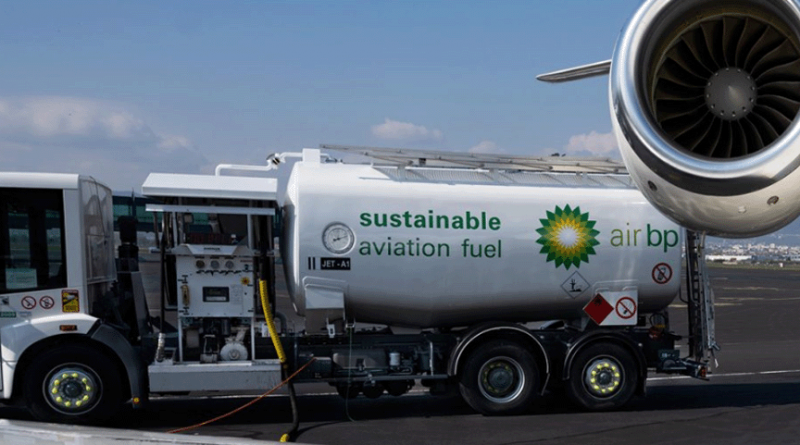Sustainability leadership
Ed Bolen is President and CEO of the National Business Aviation Association (NBAA)
Business aviation’s ability to link companies and communities around the globe became all the more apparent throughout the past three years. Even as our world has now largely settled into a new normal following the darkest days of COVID-19, our industry remains a vital part of the international travel landscape.
This is particularly evident throughout Europe, where business aviation enables point-to-point missions between communities with little or no airline service, and when other transportation alternatives offer undesirable tradeoffs in time, security or efficiency.
Indeed, our industry often provides a singular, invaluable economic link to communities of all sizes. That is true not just in the US, where the National Business Aviation Association (NBAA) advocates for our industry, but across the European continent as well.
That advantage also remains clear even as utilization continues to normalize following an unprecedented surge in business aviation activity throughout the pandemic. According to industry analytics firm WingX, business aviation activity remains higher today across the European continent than during the same period in 2019, even as year-over-year activity has decreased from 2022.
This indicates that many individuals and companies who came to business aviation during the pandemic have continued to utilize it. Figures from the European Business Aviation Association (EBAA), co-hosts with NBAA in the annual European Business Aviation Convention & Exhibition (EBACE), tell a similar tale.
Citing traffic counts from Eurocontrol, EBAA’s January 2023 Traffic Tracker indicates overall European business aviation activity has grown 8.9% over the same period last year, with increases in intra-EU travel offsetting decreases in overflight activity and effects from the ongoing crisis in Ukraine.
As demand for business aviation remains strong, however, it’s clear that we must also continue to address challenges across several fronts, perhaps most notably in the matter of environmental sustainability.
Leaders in aviation sustainability
Despite fevered and even hostile attempts to portray our industry as environmentally irresponsible, in truth business aviation remains at the forefront of the global aviation industry’s efforts to become more efficient and more sustainable.
One example of this work is the spirit of innovation that drives our industry. Business aviation manufacturers are constantly working to develop more efficient airframes and engines, which also helps to further reduce our industry’s already low contribution to global aviation carbon emissions.
Business aviation also continues to lead efforts to increase use and availability of sustainable aviation fuels (SAF) derived from renewable feedstocks that can reduce lifecycle carbon emissions by more than 80 percent compared to traditional fossil fuels.
In 2021, global industry leaders committed to net zero business aviation carbon emissions by 2050, expanding upon an earlier plan to reduce those emissions by 50% over the same timeframe. This effort – known as the Business Aviation Commitment on Climate Change – was reiterated last Fall ahead of the 41st International Civil Aviation Organization (ICAO) Triennial Assembly, where business aviation groups unveiled a set of policy principles to guide long-term reductions in carbon emissions reductions.
Even as we improve upon existing modes of business aviation transport, our industry is also hard at work to bring to market electrically-powered advanced air mobility (AAM) vehicles that stand to not only revolutionize point-to-point travel across urban areas, but to do so completely free of carbon emissions.
NBAA has made sustainability a top priority for years. Back in January 2019, NBAA showcased sustainable fuel with a day-long series of events, including demonstration flights featuring business aircraft using SAF, which had been announced at the 2018 edition of EBACE in Geneva, Switzerland.
Last year featured the inaugural EBACE Business Aviation Sustainability Summit, which highlighted the technologies and business models the industry is developing to meet that zero-emissions goal. The summit also showcased the launch of the Forever Flight Alliance to Decarbonize Aviation, supported by the Lindbergh Foundation, X-Prize Foundation, NBAA and the Prince Albert II of Monaco Foundation.
SAF can help drive down carbon emissions toward the industry’s 2050 net zero carbon commitment
Experience business aviation’s innovative future at EBACE
This year’s EBACE, taking place 23-25 May at Geneva’s Palexpo, will again bring together business leaders, government officials, manufacturers, flight department personnel, avionics firms, fractional providers, charter/lease companies and others involved in nearly every aspect of business aviation.
EBACE will feature a sizable roster of exhibiting airframe and powerplant OEMs, product manufacturers and support providers showcasing the very latest in business aviation technologies. Among them will also be several zero-emissions AAM vehicles, many of which have already flown and are now advancing toward production.
Multiple EBACE sessions will help attendees to operate in more sustainable ways. For example, A Basic Guide to Offsetting will educate business aviation operators, charter companies and brokers to become carbon-neutral through offsets when carbon emissions are unavoidable, including an explanation of how voluntary offsetting works.
Another session will explore how SAF can help drive down carbon emissions toward the industry’s 2050 net zero carbon commitment. Participants will learn how SAF is produced and distributed, as well as efforts, strategies and challenges facing this ground-breaking fuel.
This year’s EBACE will also build on last year’s introduction of SAF for outbound flights, further giving EBACE attendees and leaders the ability to truly ‘walk the talk’ when it comes to sustainability.
Initiatives and technologies enabling greater sustainability will also be front-and-centre throughout Palexpo, which has a decades-long commitment to sustainability. The facility has cut its electricity consumption by one third in a decade and reduces its carbon emissions by sourcing 95% of its products locally.
Geneva Airport, which will host the EBACE Outdoor Display of Aircraft, has a similarly impressive sustainability record, addressing matters from clean water and energy to responsible consumption of resources and careful oversight of 26 protected plant species on the airport property. As you can see, business aviation has a powerful story to tell about sustainability, and this story will be shared throughout EBACE2023. On behalf of NBAA and EBAA, I welcome readers of World Commerce Review to attend EBACE to experience the innovative thinking that drives our industry’s exciting, and sustainable, future.




